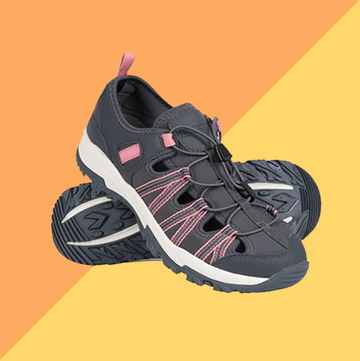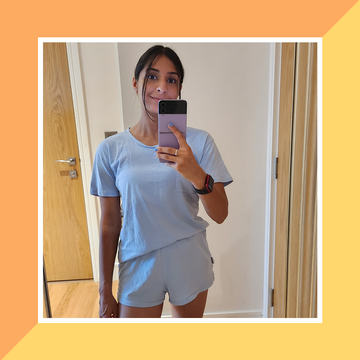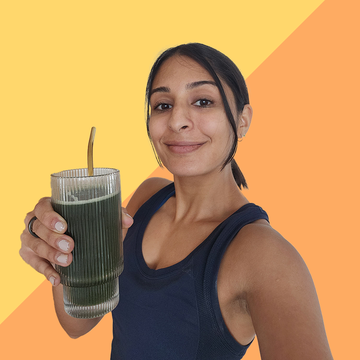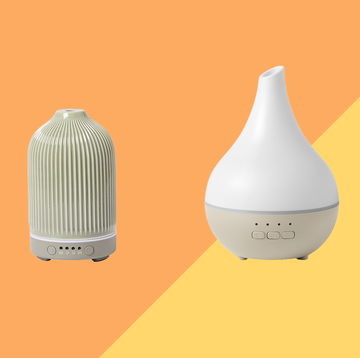We earn a commission for products purchased through some links in this article.
9 best menopause supplements for 2025, tested by 100 menopausal women
We trialled a range of products designed to help ease symptoms from hot flushes to fatigue

For most women, perimenopause (the period when our bodies begin to transition into menopause) starts between the ages of 45 and 55, with the average UK woman reaching menopause at 51. While some are lucky enough to go through the transition with minimal disruption, for others, the symptoms – which can include hot flushes, night sweats, vaginal dryness, changes in libido and brain fog – can be debilitating.
Hormone replacement therapy (HRT) tops up falling levels of hormones and is the most effective treatment for symptom relief, but herbal products are also becoming increasingly popular, with the global menopause supplement industry projected to reach $22.7 billion by 2028.
These days, there are countless pills and powders available, all claiming to ease common symptoms. But are they likely to work, and how do you know which one might be right for you?
To cut though the noise and help you make an informed decision, we spoke to Laura Clark, a registered dietitian specialising in menopausal health. We also recruited a panel of 100 perimenopausal and menopausal women to help us put a range of popular herbal remedies to the test over a two-month period, to find the best menopause supplements on the market.
We've also tested the best collagen supplements, the best sleep supplements and, if you're focusing on your health and fitness this year, the best creatine supplements.
Do menopause supplements work?
The big question: do menopause supplements actually work? According to Clark, it’s difficult to draw any solid conclusions. “Supplement companies conduct their own trials and audits, but unless these have been peer-reviewed, it's hard to know if they are truthful, valid or accurate,” she explains.
If you do wish to take a herbal supplement, opt for one with well-researched ingredients that's based on peer-reviewed studies, rather than company funded research. “The common recommendation is to trial a supplement for three months to assess whether it provides benefits that outweigh the financial cost,” says Clark.
She offers an important reminder: “You should consult a healthcare provider before using any supplement, especially if you have an underlying health condition or are considering alternatives to medical treatment.”
It’s also important to keep in mind that we’re all unique and what works for one person may not be right for someone else.
Supplements vs HRT
Let’s be clear, menopause supplements should not be considered a substitute for HRT.
“While some supplements show promise, the efficacy varies widely, and HRT remains the most well-supported medical intervention for menopausal symptoms,” explains Clark. “A balanced diet, regular exercise and a diverse gut microbiome remain the best evidence-based strategies for supporting overall health during menopause,” she adds.
The majority of supplements on our list below can be taken alongside HRT. You can find this detail in our key specs. Note that if you are taking HRT, always check with a medical professional before trying a natural remedy. This is because some ingredients can affect the way HRT works and make it less effective.
What to look for in a menopause supplement
If you do want to give a natural menopause supplement a try, Clark says there are some ingredients to look out for based on peer-reviewed data.
“In terms of ingredients, soy isoflavones are the most widely studied,” she says. “They’re thought to be beneficial because of their structural similarity to oestrogen, which allows them to mimic some of its effects on the body. Evidence is strongest for their ability to reduce the severity and frequency of hot flushes.”
Other ingredients that have been studied in a high volume at a peer-reviewed level include black cohosh and red clover, both of which have estrogenic effects. “They may impact a broader range of menopausal symptoms like anxiety and other psychological symptoms, but due to diversity of preparations and dosages used in studies, we can’t draw firm any conclusions,” says Clark.
She also notes that there are other emerging ingredients in the menopause supplement space which are helping women. Without sufficient peer-reviewed data, though, it’s hard to say definitively.
How we test menopause supplements
To find the menopause supplements worth considering, we asked Clark to help us judge a range of products – in tablet, gummy and powder form – from leading brands. She assessed each product, providing in-depth feedback and analysis on the ingredients along with any potential benefits or contraindications.
Next, our Good Housekeeping Institute team recruited 100 panellists to trial the supplements over an eight-week period (or in line with the manufacturer's recommendations) before feeding back on their experiences. Each product was tested by 10 women going through the perimenopause or menopause.
We asked them to consider ease of use, noting how simple the product was to dispense and consume. Crucially, they also assessed performance, highlighting any benefits they noticed or side effects they experienced after taking the supplement as instructed.
Back in the lab, our in-house experts collated all the feedback and analysed the results to give each product a final score. Here’s how they performed.
Priyankaa is our sleep and wellness expert, specialising in expert-tested reviews and roundups on the latest health and fitness products. From walking boots to running machines, Priyankaa has written about hundreds of products and is passionate about providing in-depth, unbiased reviews. Plus, as an avid runner and gymgoer, she knows exactly what to look for when finding the right gymwear, fitness tracker or earphones.
Priyankaa has an MA in Magazine Journalism from Cardiff University and over five years’ experience in health and fitness journalism. Priyankaa has written for Stylist’s Strong Women Training Club, where she regularly wrote about diversity in the fitness industry, nutrition tips, training advice and her experience completing various fitness challenges. She has also written for a variety of publications including Business Insider, Glamour, Bustle, Metro, HuffPost UK, gal-dem and more. Outside of work, Priyankaa can usually be found trying out a new gym class, seeking out London's best eats or watching a Spanish TV show in a bid to keep up her language skills.
Kim Hawley is our health and fitness product tester. Her career in fitness has spanned over 30 years. Prior to joining the Good Housekeeping Institute, she worked as a personal trainer, writer and fitness instructor for some of London’s most prestigious health clubs, including The Harbour Club, David Lloyd and The Chelsea Club. Passionate about women’s health and fitness, especially in pre/post menopause, she is also a Level 4 PT and holds a professional nutritional qualification. Kim is responsible for rigorously testing everything from cross trainers to smart watches.

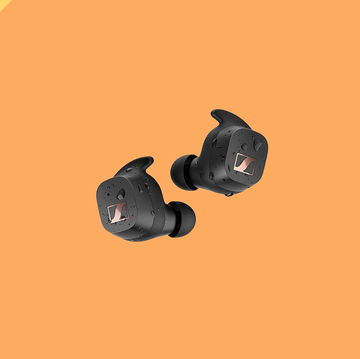
13 best headphones for running and workouts
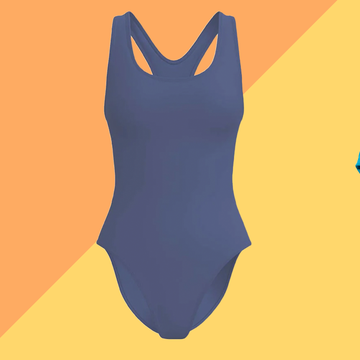
The best period swimwear, tried and tested

The best sleep supplements to help you nod off
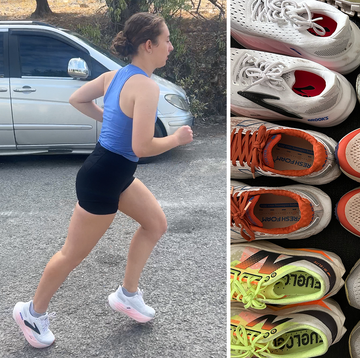
The best running shoes to shop now











